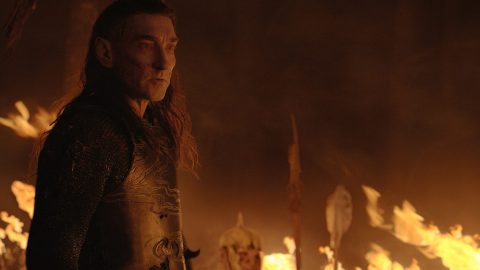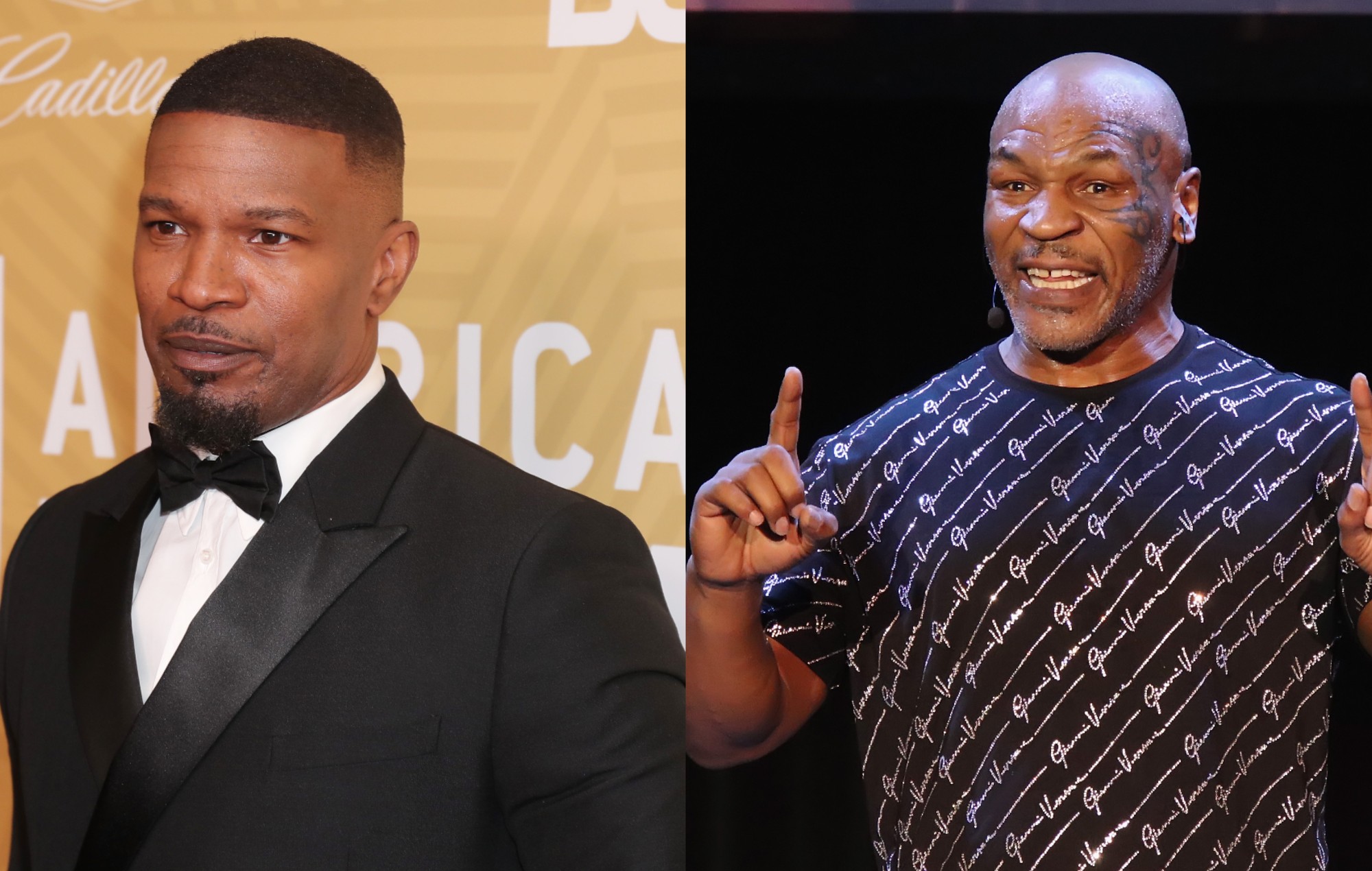NME Music News, Reviews, Videos, Galleries, Tickets and Blogs | NME.COM
![]()
There’s no mistaking an Ennio Morricone score. Maybe one of the only film composers whose style was so distinctive that you recognised it as soon as you heard the first few notes, Morricone revolutionised the way movies sounded across more than 500 classic soundtracks.
Covering everything from grand choral operas, claustrophobic synth horrors, snarly electric westerns and beautiful romantic melodies, Morricone’s work reshaped the way that films used music to power their emotional beats – going on to influence everyone from Muse and Metallica to Radiohead and The Last Shadow Puppets. Now that Il Maestro has sadly passed away, aged 91, it’s time to look back at the 10 greatest Ennio Morricone soundtracks.
‘Malèna’ (2000)
A swoony ode to first love (specifically about Italian actress Monica Bellucci), Morricone’s bittersweet symphony of adolescent romance and small-town intolerance drips with lust and longing – a warm-hearted classical score that, like his best work, also manages to feel slightly sad and melancholy at the same time. Giuseppe Tornatore’s Sicilian coming of age tale is slighter than some of his bigger epics, but Morricone helps him fill the film with the grandest of emotions.
Most iconic moment: The first time Renato sees Malèna (Belluci) walking through town – showing us just how much Tornatore and Morricone are both in love with her.
‘For A Few Dollars More’ (1965)
A man. A horse. A gun. A desert. Director Sergio Leone kept his frames as empty as possible when he made his early spaghetti westerns – letting Clint Eastwood’s squint and Morricone’s melodramatic scores do all the work. The middle chapter of the trilogy has some of the composer’s best and most iconic work – mixing whistles, angry guitars, church bells, organs and chanting to slowly build the tension during some of cinema’s greatest shootouts.
Most iconic moment: A musical pocket watch showdown that builds from the simplest of tunes to the grandest of operatic finales.
‘The Thing’ (1982)
Hated at the time (even picking up a Razzie award for some reason), Morricone’s work on John Carpenter’s Antarctic horror stands now as one of his most evocative scores – stripped down, synth heavy and eerie as hell. Carpenter usually scores most of his own movies but he handed the job to Morricone instead, who perfectly captured the feeling of cold claustrophobia with a sparse, creeping work of existential ’80s dread.
Most iconic moment: All the best bits of the film are set to silence, but the chilly opening introduces Morricone’s score in the best possible way.
‘Days Of Heaven’ (1978)
Terrence Malick’s elegiac romance drifts through golden cornfields and over rural American landscapes in an ode to landscape painting and the seasonal sweep of nature. In short, it looks pretty great. Who better to score it than Morricone then – offering up the rich flip side to the kind of empty, dead vistas he made famous in his western soundtracks, and making Richard Gere and Brooke Adams’ romance swell with the sound of classic cinema.
Most iconic moment: The locust swarm, one of Mallick’s great set pieces and the only time a million flying insects have ever sounded romantic.
‘The Mission’ (1986)
The story of a Jesuit priest who journeys into the South American jungle in the 18th Century to find “heaven on Earth”, The Mission tasked Morricone with the most ambitious soundtrack of his career – using indigenous instruments and classical choral church music to score the sound of two worlds meeting for the first time. With ‘Gabriel’s Oboe’, Morricone crafted a powerhouse main theme that stands as his most beautiful and sweeping.
Most iconic moment: Gabriel’s spiritual climb up the Iguazu Falls – made into a slice of pure cinema by Morricone’s grandstand score.
‘The Untouchables’ (1987)
Somewhere between a radio serial and a comic book, Brian De Palma’s larger than life gangster flick still hits hard – thanks in part to Morricone’s pacy, punchy score. The good guys are given great superhero themes, the baddies get whiney trumpets and all the action is set to a heartbeat metronome that carries the film’s best bits with the violence and power they need to keep things gnarly.
Most iconic moment: The baby carriage scene – Morricone ratcheting up the tension before releasing it in slow-mo brutality.
‘Once Upon A Time In America’ (1984)
When Leone decided to switch genres and make the ultimate American gangster movie, he tasked Morricone with writing a score that sounded just as iconic as his westerns. What he got was something that sounded about as far from the mean streets of New York as possible – all soft pan-flutes and high-pitched Italian solos – but somehow it worked. Just as grand, soaring (and slightly western) as the film, Morricone’s score haunts the film with unexpected melancholy.
Most iconic moment: The bridge shooting, as a gang of kids in baggy clothes lose their first friend – filmed and scored like some weird sepia dream.
‘Cinema Paradiso’ (1988)
Morricone’s best score for director Giuseppe Tornatore is his most romantic – a wide-eyed, romantic love letter to cinema itself that’s about as far away from his overwrought cowboy epics as you can get. The story of a young boy who grows up in a projection booth, the film’s heart-breaking score has since become one of cinema’s great classics – the sound of Hollywood as it likes to remember itself.
Most iconic moment: The musical montage made up of all the cut kisses from classic movies. Grab the tissues.
‘Once Upon A Time In The West’ (1968)
The grandest of Morricone’s westerns, his work on Leone’s sprawling opus is just as harsh, complex and violent as the film itself – a rough-hewn, end-of-the-world symphony that builds from ugly, dying harmonicas to a full-blown opera. A dance of deceptively simple themes, the score is Morricone at his best – making a little sound like a lot more than anyone else ever has, before or since.
Most iconic moment: That opening. A cold-blooded cornfield murder that uses Morricone’s guitar to cut through the silence in the most aggressive way imaginable.
‘The Good, The Bad And The Ugly’ (1966)
Once Upon A Time In The West might be Morricone’s masterpiece, but he never wrote anything more memorable, more evocative and more downright iconic than The Good, The Bad And The Ugly. The first refrain is so simple you can whistle it in the shower, and the final showdown builds on the same setup as For A Few Dollars More, but in Morricone’s hands it becomes something biblical – screaming desert winds rising to apocalyptic rock opera, all played with a wink and a smile to score the greatest, longest, slowest shootout in cinema history.
Most iconic moment: Three guns. Three pairs of narrowed eyes. One Ennio Morricone.
The post Il Maestro: Ennio Morricone’s 10 best film scores appeared first on NME Music News, Reviews, Videos, Galleries, Tickets and Blogs | NME.COM.




